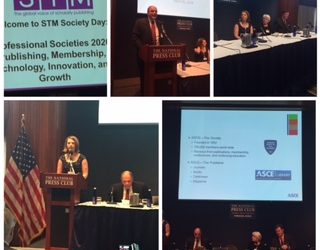Political activism in the US has shifted into high gear to a level not seen since the 1960s. I am an avid reader of news, perhaps too immersed if I can be honest; but, even I have shifted my focus and gotten more involved with political activism…or even politics in general.
According to a poll done by the Washington Post and the Kaiser Foundation, I am not alone. The poll found that 1 in 5 Americans have attended a political protest, rally, or speech in the last two years. Forty percent of respondents have contacted elected officials and 41% have participated in boycotts of services or products that don’t align with their social values.
While massive marches and walk-outs garner lots of media attention to a cause, perhaps more effective are the grassroots campaigns focusing on politicians and local campaigns.

There are different forms of activism and communication with your politicians. There are bots that allow you to simply text a number and they will automatically send a prewritten message to your representatives. There are also petitions and form letters that can be accessed on websites and sent with the click of a button. This is super easy and allows for a massive number of comments to be logged; however, is it the most effective form of activism?
What you need to get your message across is a story. Why is this issue important to you? Do you have a connection to the topic? Are you facing personal hardships if X doesn’t happen or Y happens?
You may be asking yourself what all this has to do with scholarly publishing. It is time to start advocating. No, not you Elsevier. We’ve heard you Wiley. I am talking about society publishers.
Societies find themselves in a unique spot when it comes to advocacy for several reasons:
- The society as a whole has an advocacy agenda that may have little to do with publishing (increasing federal funding for research, programs, or infrastructure improvements, for examples). These issues will likely take precedence over publishing related matters.
- Resources dedicated to advocacy may be non-existent in smaller societies.
- Society advocacy is typically focused on the concerns of members of the society, not the society itself.
Societies looking for representation may find value in organizations such as the International Association of STM Publishers (STM) or Association of Learned and Professional Society Publishers (ALPSP) for issues in Europe. The Association of American Publishers (AAP) has a strong advocacy component that has, in the past, included representation of scholarly publishing through their Professional Scholarly Publishers (PSP) arm; however, the future direction of PSP is in question.
So, are we covered? Not quite. STM does not represent just societies. It also represents the big commercial publishers, companies that pay STM a whole lot more in annual dues than the average society would. Societies are represented on the board, but an advocacy message is not going to be tailored to the unique circumstances of a society. And let’s face it, one society may have completely different needs than another society.
I have heard people from societies say things like, “the big publishers will fight against this and we will be fine.” This may work on some issues, but not others. Take Plan S for example. Plan S could have the (un)intended consequence of strengthening the commercial publishers and being a society killer if it collects a critical mass of funders supporting it. Mike Clarke wrote a great post about the ramifications to societies.
Plan S greatly benefits publishers that enjoy large scale operations. Let’s say you are a society with three journals, all of which are hybrid. Your society depends on the income from the journals. Currently, only 5% of the content is supported by APCs under the hybrid model. Twenty four percent of the papers you receive are currently authored by cOAlitionS funded researchers. In order to keep those papers and become Plan S compliant, you have to flip those journals to fully-open access (OA) under a transformative agreement AND you have no idea what the cap will end up being on APCs. This would put your society in an extremely tenuous position.
Let’s say you are a commercial publisher with 1,000 journals – then the numbers change significantly allowing the commercial publishers to make the journals with the highest participation of cOAlitionS funded papers OA while still enjoying the support of subscription and hybrid journals to support the overall program. Further, commercial publishers may be able to strike a deal on capped APCs that would not be financially feasible for society publishers. Their size also gives them the advantage in negotiating “transformative” deals with libraries and consortia, who generally don’t have the time or motivation to negotiate with smaller publishers.
The bottom line is that a proposal like Plan S benefits publishers with enormous scale and does irreparable harm to publishers, mostly societies, that don’t. The results of this kind of behavior (again this is only realized with large scale adoption of Plan S) are likely to be that more societies will be forced to partner with commercial publishers in order to protect income and member benefits (frequently the journal) and be able to take advantage of scale.
Ironically, the funder mandate that boasts of radically changing the scholarly publishing landscape has the potential to strengthen the hand of the commercial publishers.
Eric Liu, founder of the non-profit Citizen University, authored a book called You’re More Powerful Than You Think: A Citizen’s Guide to Making Change Happen. In this interview he describes what happens when power is collected by the few:
Power compounds by making the already powerful even more powerful, and it justifies itself as people in power find ways of making arguments to sustain and legitimize their power. Those two factors alone could create a doom-loop of power becoming increasingly concentrated, but what saves us is that power is also infinite. Power is something that any one of us can create. And civic power is not zero-sum.
The unique circumstances of societies seem to be coalescing with meetings of society stakeholders to specifically address funding mandates and directions forward in an OA environment. In response to Plan S, there are statements being collected for feedback with various groups of societies signing on. There seems to be a realization that maybe Elsevier won’t have our backs on this one, which is perfectly fine. Many of our societies have long been freeloaders on the backs of Elsevier’s advocacy efforts.
It’s time for societies to take their own stand. Tom Reller, spokesman for Elsevier, (in)famously states that if you aren’t out there being your own spokesperson, then he is your spokesperson.
There are a few ways to step into advocating for your society needs in the scholarly publishing arena:
- Read up. Stay in tune with the latest developments that affect your publishing program. Legislation at the state and federal level have been introduced or passed that could affect your program. Know what’s happening and when public comment periods are open or a letter to a senator is warranted.
- Know your own journals. Most legislative threats come in the form of either access to journal articles derived of governmental funds or copyright issues. Check periodically on what your risk level is on funders. Where are your papers coming from and who is funding the research being described.
- Engage your government relations (GR) team. If your GR people aren’t focused on issues around your publications, teach them. Ask them to share information with you and reciprocate.
- Get your members involved. Maybe some of this is “inside baseball” to your editorial board or your governance boards, but they should be aware of the opportunities to advocate for the society around publishing issues.
- Respond with feedback. When you have an opportunity to provide feedback, do so. Don’t assume that someone else is providing that feedback so you don’t have to.
Plan S is front and center as feedback on the implementation plan is due on February 8.
Overall, who best to advocate for societies but societies themselves?
Discussion
8 Thoughts on "Speak Now or Forever Hold Your Peace"
Thank you, Angela, for this thoughtful call to action, complete with specific tips for ways to engage! I have to say, I reached the end looking forward to reading the comments of others and was amazed to see…
None. :-/
What does that mean? Are we really so disengaged/busy/paralyzed/other? If we, as a community, are not able to engage in this important conversation and advocate for ourselves and our peers NOW, some of us may very well find ourselves in a new agenda-driven reality in which we no longer have a place or purpose. Please know that I have heard (and am grateful for) your message. Count me in for adding one more voice to the call for feedback by the February 8 deadline!
Thank you Angela! It is important for societies to speak up on Plan S and any others that threaten our publishing models. Back in the early 2000s, many of the publishers working with HighWire Press organized to counter NIH efforts to create E-Biomed and ultimately to promote public access to the NIH funded research appearing in our journals. I had a hand in the creation of the Washington DC Principles Coalition in 2004 which brought together some 70 non-profit publishers (societies and university presses) to counter the NIH Public Access plan. While we were not fully successful, we did manage to make the mandatory plan one which required the content to be made freely available 12 months after publication. Working together, we had a voice which enabled us to engage with Congress, NIH and others. Indeed, as the DC Principles Coalition, I often found myself on Capitol Hill with representatives from commercial publishers providing justification for why they should not support FRPAA. When Fred Dylla came down to the DC area to lead the AIP, he helped to reinforce the 12 month mandate and worked with the Department of Energy to create PAGES, their public access site.
Societies, working together can turn the tide and strengthen support for our publications model.
Marty, I received an email today from a colleague asking who will be the Marty Franks and Fred Dyllas of the next generation? It has not occurred to me at the time of writing this post that the days of Marty and Fred standing up and asking the hard questions needs to be picked up by others. Both of you with a cadre of others were leaders in advocating for societies. There are voices taking up the mantle here and there. I just think we need more of them, from more societies, and more disciplines to amplify the message.
Good advice on this important topic. Surprised that there are not more comments from societies, particularly those in the humanities and social sciences. I wonder what the reason is? Are they not reading posts? Do they have it all worked out?
It would be really useful to hear from societies on actions being taken to be well-versed and well-prepared.
The UK Academy of Social Sciences is finalizing a submission on behalf of its member societies. I will post a link when this is available. The Royal Historical Society has prepared a particularly thorough review on behalf of its members and other groups of historians https://bit.ly/2FQzerf Social Science and Humanities Societies in the UK at least are taking this all very seriously – but the advocates of Plan S are mostly from the STEM world and have no interest in listening.
It might be useful to see how many societies, journals, editors and publishers ARE responding, and how. I’ve been collecting the editorials that I have seen; some of them will I know be sent in to Coalition S as Feedback.
One from yesterday that I just was alerted to today is Marcia McNutt’s editorial in PNAS (Marcia is President of the NAS): “Opinion: “Plan S” falls short for society publishers—and for the researchers they serve”. https://www.pnas.org/content/early/2019/01/24/1900359116
Nearly every opinion piece I have seen has been in a journal that is a society-owned, hybrid journal (I admit to selection bias). One was in JCI, which was the first OA journal HighWire launched (long before I recall anyone using the phrase “open access”): “JCI -Free access to scientific publications: contrasting the JCI approach to Plan S”. https://www.jci.org/articles/view/126932 JCI and The BMJ are now essentially OA research journals (the research content is open). So these are not bystanders or latecomers to open access.
Thank you for this important post, Angela. As you note, there have been several multi-society meetings in the U.S. to discuss open access in general and Plan S specifically. I am dismayed but not surprised that it took something like Plan S to galvanize societies. It is indeed time for societies to take their own stand and get off the sidelines. Those that continue to sit on the sidelines or behind their commercial publisher do so at their peril.
Plan S is a blessing in disguise. It is the kick in the seat of the pants societies have needed to not only respond to Plan S, but to work together on myriad other initiatives to improve the publishing enterprise.



